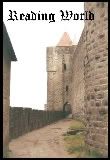After reading Iris Murdoch’s A Fairly Honourable Defeat, I said I had to read more by this author, but not right away. (It’s a draining experience.) I finally got around to reading another, The Black Prince. It’s an equally fine book, but also a rather painful exploration of human nature and human flaws. The protagonist/narrator has a Humbert Humbert vibe.
Bradley Pearson is the first person unreliable narrator. He is a 58-year-old retired tax investigator and aspiring novelist. His account of events in his own life form the basis of this work. It’s told in parts. There is an editor’s foreword, another foreword by Pearson, Pearson’s story “in three parts,” a postscript by Pearson, then four postscripts by other significant characters, and finally, an editor’s postscript. The stories don’t all add up, and the reader is invited to choose who to believe.
Pearson is only minimally successful as a novelist. His post-retirement goal is to finally write his masterpiece, but he is cursed with a perennial case of writer’s block. He believes that escaping to a seaside cottage will unlock his creativity, but a series of events prevents him leaving his London home.
The cast of characters includes his closest friend, Arnold Baffin, a wildly successful author of popular commercial fiction. Pearson sneers at his friend’s success, but admits, reluctantly, to some professional jealousy as well. Arnold is married with a 20-year-old daughter, Julian. His marriage is supposedly solid, but Arnold does play around. His wife seemingly puts up with it, but after one violent argument, where Pearson observes the aftermath, she starts coming on to Pearson. For a number of reasons, he is tempted. But while the spirit is willing, the flesh is weak.
Pearson also has a sister who has been miserably married for years and has just left her husband. The sister is a wreck. Pearson is not particularly sympathetic, but feels trapped into helping her–another reason he can’t just up and leave London. His sister is suicidally depressed.
If this all isn’t enough, Pearson’s ex-wife is newly widowed from her second marriage. She returns to London eager to see Pearson. Her motives are unclear. He despises her. Insists he has no interest in seeing her. Ever. And yet, he does. Again and again. The ex-wife has a parasitic, alcoholic brother, who attaches himself to Pearson.
It all gets very complicated. But Pearson has an epiphany. A life-clarifying insight. He falls in love with Julian.
So, ick. While vaguely realizing this is wrong, he nevertheless marches down the path of seducing his best friend’s 20-year-old daughter, full of self-justification and insistence that this is not just a case of a middle-aged man feeling uncontrollable lust for a near-child. This is true love.
All hell breaks loose.
Once again, Murdoch creates realistic and realistically awful characters, whose plights draw readers in. The deeply psychological twists of the protagonist’s mind and the games the characters play with one another make for gripping reading. Murdoch’s wonderful dialogues break all the rules of dialogue-writing, and yet the conversations propel scenes along.
While I still prefer A Fairly Honourable Defeat, The Black Prince is also a superb reading experience.






























